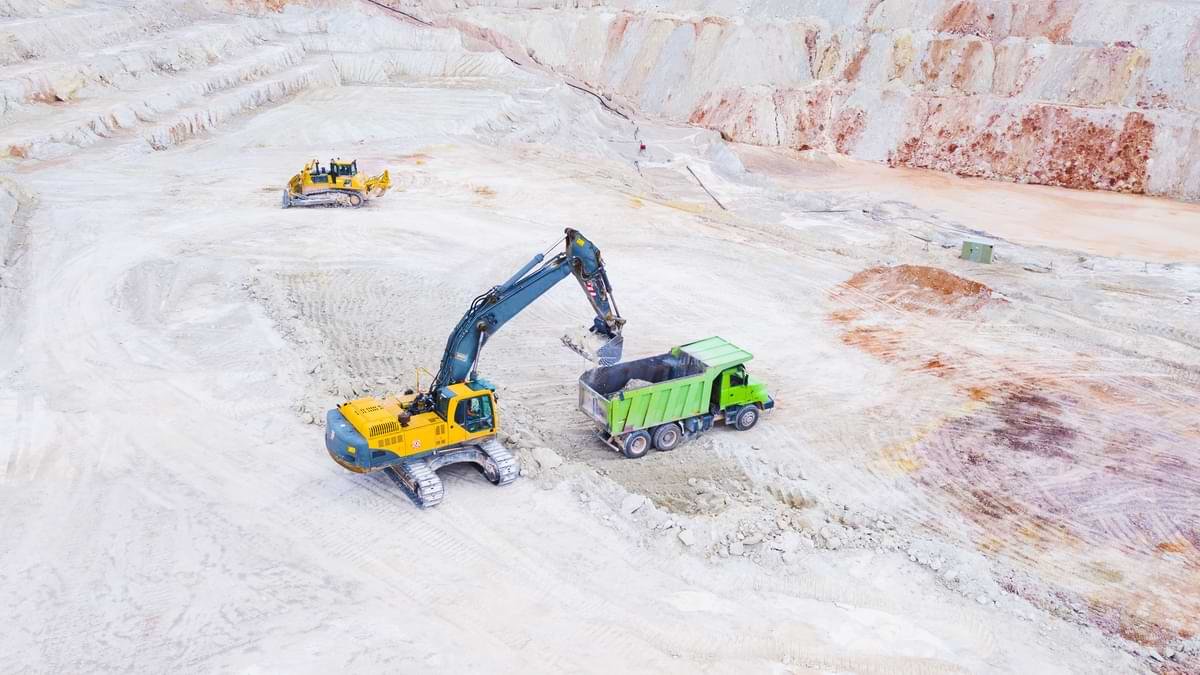Kaolin is a white crystalline mineral whose derivatives are used in a broad range of applications. From paper receipts collected at the coffee till to the fresh layer of paint on your roof— kaolin derivatives like hydrous (wet) kaolin impact the final aesthetic and function of these products. In Australia, the largest and sole producer of premium wet kaolin is a company named SUVO Strategic Minerals. Despite pandemic-induced economic influxes and supply chain issues, they’ve successfully commissioned a wet kaolin plant called the Pittong Operations, to a production capacity of 60kt per annum. They also own a mining license in this area with sufficient kaolin resources to operate for the next 20+ years.
In the previous year, SUVO generated roughly $11 million in revenue just from the sales of wet kaolin. They now have their sights set on Asia Pacific to place the newly created production capacity from the Pittong Operations.
The global kaolin market is currently valued at about $3.3 billion and is estimated to grow at 5.5% CAGR. A key reason for this consistent growth is the increased demand for packaging due to rising e-commerce activities. As more housing projects get built to accommodate the rapidly growing populations, particularly in developing countries in Southeast Asia, Latin America, and Africa, more building supplies will be required such as paint and concrete. The Asia Pacific region has a market demand of 5 million tpa due to its large breadth of housing, manufacturing, and e-commerce activities. SUVO currently has sent 20+ samples out to customers throughout Asia, and according to the interim CEO, Bojan Bogunovic, after successful lab scale and plant level trials of SUVO kaolin by some customers, contractual off-take negotiations are well advanced. Last year, SUVO brought on three experts in the kaolin industry, all of whom have combined 60+ years of kaolin sales experience, with two of them being ex-Imerys (the global leader in the kaolin market). SUVO anticipates selling out the remaining wet kaolin from Pittong, which would skyrocket their revenue anywhere between $30 million and $40 million, according to Bogunovic. Their current market valuation of circa $26 million is based upon their existing sales of ~20kt per annum. Given that they still have 40kt per annum left to sell and already have sales activities ensuing in the Asia Pacific, we may start to see revenue tick up significantly as quickly as in the next three to six months. This presents an attractive opportunity to buy in just before SUVO starts generating serious cash flow. SUVO only needs to sell another 3,000 tonnes to break even—the rest is all profit.
Aside from kaolin which acts like a stable resource investment, SUVO is working on different revenue streams within their capabilities including calcined kaolin and metakaolin for the green concrete project. Currently, the 20kt that SUVO sells is divided into a number of different industries including: Paper, paint, inks, and rubber. Calcined kaolin which is required for fine ceramics, premium paints, and top coats in paper packaging can be sold at a premium.
Calcined kaolin is created by firing wet kaolin at high temperatures in a kiln. Many of SUVO’s existing wet kaolin customers already purchase and import calcined kaolin from American companies but at a premium. If SUVO can provide calcined kaolin from its Pittong Operations, the transition seems to be imminent.
All in all, the next six to 12 months are critical for SUVO, as they make their headway into the Asia Pacific market. Closing a few deals would help SUVO reach profitability, and with Bogunovic’s ambitious plans to sell out all the newly created capacity from the Pittong Operations in the near term, investors may have their grip on a lucrative turning point in this company’s history.

